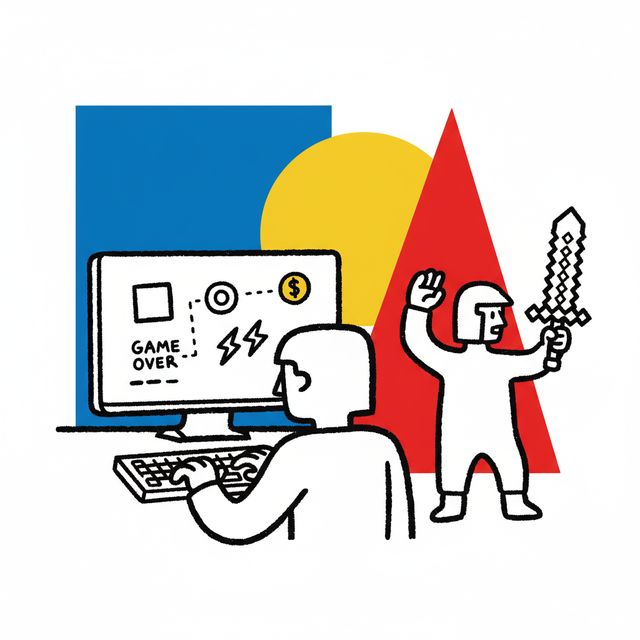Game Programmer
Game Programming is an exciting and challenging career that allows you to use your creativity and problem-solving skills to create interactive and engaging experiences. As a Game Programmer, you will be responsible for designing, developing, and maintaining video games. You will work with a team of artists, designers, and programmers to bring your ideas to life.
What does a Game Programmer do?
Game Programmers are responsible for a wide range of tasks, including:
- Designing and developing game mechanics
- Creating 3D models and animations
- Writing code to control game logic
- Testing and debugging games
- Maintaining and updating games
What skills do I need to become a Game Programmer?
To become a Game Programmer, you need a strong foundation in computer science and programming. You should also have a passion for video games and a creative mind. Some of the specific skills you need include:
- Programming languages (C++, Java, Python)
- Game engines (Unity, Unreal Engine)
- 3D modeling and animation software
- Game design principles
- Problem-solving skills
- Creativity
What is the job outlook for Game Programmers?
The job outlook for Game Programmers is expected to be good over the next few years. The video game industry is growing rapidly, and there is a high demand for skilled Game Programmers. However, competition for jobs can be fierce, so it is important to have a strong portfolio of work to show potential employers.
What are the benefits of being a Game Programmer?
There are many benefits to being a Game Programmer, including:
- The opportunity to work on creative and challenging projects
- The chance to make a difference in the world by creating games that people love
- A competitive salary and benefits package
- The opportunity to work with a team of talented and passionate people
What are the challenges of being a Game Programmer?
There are also some challenges to being a Game Programmer, including:
- Long hours and crunch time
- The need to constantly adapt to new technologies
- The pressure to create games that are both fun and successful
- The risk of burnout
What is the day-to-day life of a Game Programmer like?
The day-to-day life of a Game Programmer can vary depending on the project you are working on. However, some common tasks include:
- Working with a team of artists, designers, and programmers to brainstorm ideas for new games
- Designing and developing game mechanics
- Creating 3D models and animations
- Writing code to control game logic
- Testing and debugging games
- Maintaining and updating games
What are the personal growth opportunities for Game Programmers?
There are many opportunities for personal growth for Game Programmers. As you gain experience, you can move into more senior roles, such as Lead Programmer or Game Director. You can also specialize in a particular area of game development, such as graphics programming or AI programming. Additionally, you can learn new skills and technologies to stay up-to-date with the latest trends in game development.
What personality traits and personal interests do Game Programmers have?
Game Programmers typically have the following personality traits and personal interests:
- A passion for video games
- A creative mind
- Strong problem-solving skills
- A willingness to work long hours
- An interest in learning new technologies
- A desire to make a difference in the world
What self-guided projects can I complete to better prepare myself for a career as a Game Programmer?
There are many self-guided projects you can complete to better prepare yourself for a career as a Game Programmer. Some of these projects include:
- Creating a portfolio of your own games
- Participating in game jams
- Learning a new programming language or game engine
- Experimenting with different game genres and mechanics
- Building a community of other Game Programmers
How can online courses help me prepare for a career as a Game Programmer?
Many online courses can help you prepare for a career as a Game Programmer. These courses can teach you the skills and knowledge you need to succeed in this field. They can also provide you with feedback on your work and help you build a portfolio of projects. By taking online courses while networking and joining professional organizations, you can increase your chances of success.
Are online courses alone enough to follow a path to this career?
Online courses can be a helpful tool for preparing for a career as a Game Programmer. However, they are not enough on their own. To succeed in this field, you need to have a strong foundation in computer science and programming. You also need to have a passion for video games and a creative mind. Additionally, you need to be willing to work hard and to constantly learn new technologies.


